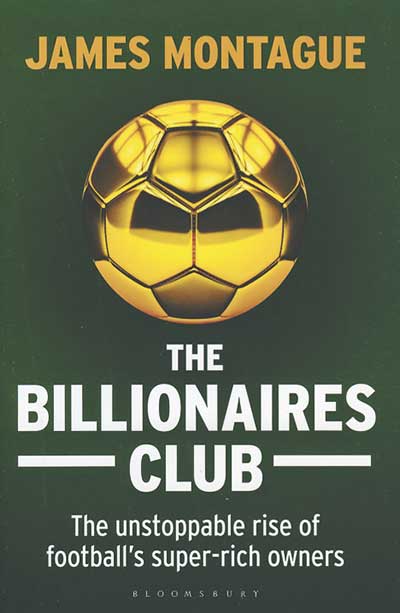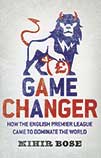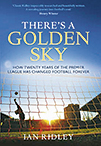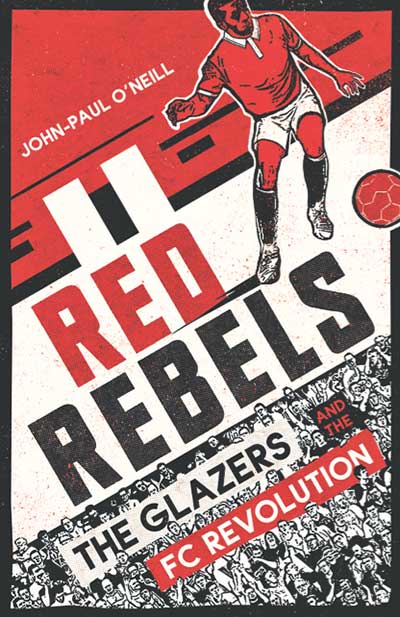Search: ' Glazers'
Shop
Stories

by James Montague
Bloomsbury, £16.99
Reviewed by Paul Rees
From WSC 368, October 2017
Buy the book
 How the English Premier League came to dominate the world
How the English Premier League came to dominate the world
by Mihir Bose
Marshall Cavendish Business, £14.99
Reviewed by Huw Richards
From WSC 311 January 2013
Mihir Bose is an authentic journalistic heavyweight. Before becoming the BBC’s first sports editor he made his mark as Britain’s pioneer of serious sports business journalism. He has been ringside for every major sports story of the past 30 years and ranges well beyond that, with a catalogue including subjects such as Bollywood, the financial crash of 1987-88 and Indian nationalist Subhas Chandra Bose (no relation).
So it is hard to think of anybody better qualified to attempt a definitive account of the Premier League. Sadly the attempt rather fails – maybe he knows too much. Some detail, like the reminder that Sky were forced by smaller clubs on the giants, who generally favoured ITV, is highly relevant. Much more is head-spinningly complex and some – such as what was eaten at important lunches – simply unnecessary.
It is oddly structured, with a long diversion into essays on Alex Ferguson, Arsène Wenger and José Mourinho. None is bad in itself, and Ferguson is vividly portrayed, but in covering such excessively well-trodden ground the narrative loses a momentum it never really regains.
It starts badly with a chapter on football in the 1980s that fails to address the fact that crowds rose steadily from their 1986 lowpoint, making it possible that the Premier League inherited, rather than created, the upturn, and mentions the 1990 World Cup only in passing. If he is to convince that football was irredeemably horrible then he needs better witnesses than Tim Lovejoy and Piers Morgan. Hearing that a teenage Piers was clocked by a pint of piss at Highbury in 1983 will make more readers cheer than wince.
That typifies a problem with sources. Bose is not an unconditional admirer of the league but he appears not to have read its most cogent critics – the bibliography cites GQ and a welter of biographies but nothing by the Guardian‘s David Conn.
He has little time for organised fans and is critical of Manchester United’s followers, while giving plenty of space to City advocates for the Glazers. Those voices are worth hearing but they’ll have to do better than arguing that “If the Glazers walk away from United tomorrow, United is a sustainable business. You haven’t got an uneconomic club like Chelsea”, entirely ignoring that “a sustainable business” is what the Glazers took over.
Similarly, quoting figures to show that Wigan’s turnover is proportionately closer to United’s than it used to be ignores that one club has risen three divisions while the other stayed where it was. Numbers purporting to prove that the Premier League is outpacing its rivals actually show La Liga and the Bundesliga keeping up in absolute terms and making ground proportionately.
Apparently written in haste, this book desperately needed a rigorous editor. There’s a decent read in here somewhere, probably around two-thirds the length plus the index which, unforgivably for a serious factual work, this lacks.
 There’s A Golden Sky: How 20 years of the Premier League has changed football forever
There’s A Golden Sky: How 20 years of the Premier League has changed football forever
by Ian Ridley
A&C Black, £18.99
Reviewed by Ed Wilson
From WSC 305 July 2012
In the same way that the X Factor is only capable of assessing the importance of the Beatles through the number of “units” they sold, the Premier League is often characterised as measuring success by spreadsheets alone. There’s A Golden Sky is Ian Ridley’s contribution to the debate about the impact of the League – and its money – on the English game as a whole.
Ridley, who writes for the Daily Express, takes the 2010-11 season – the 19th year of the competition, but the 20th anniversary of its conception – as the backdrop to his journey through English football, encompassing everything from the perennial contenders for the Champions League positions to Sunday league players struggling to keep down the previous night’s drinks.
The author has twice served as chairman of Weymouth FC, so perhaps it is not surprising that this book excels when it deviates from the mainstream. There are touching profiles of Wembley FC and Truro City, a visit to Hackney Marshes and an intriguing encounter with Spencer Trethewy who, at 19, announced his ill-fated plan to “save” Aldershot FC on Wogan.
As well as highlighting the knife-edge existence of smaller clubs, these chapters constitute an attempt to answer the question of what drives people to get involved at non-League and grassroots level – from personal grandstanding to a genuine desire to serve the community. At this level, money is not much of a motivator.
Oddly, given the book’s title, the chapters on the Premier League are the least engaging. Occasionally they throw up a new angle or a quirky fact. Sir Alex Ferguson, for example, personally checks each of his players for jewellery before they leave the changing room on matchdays. Don’t think about it too much – the mental pictures aren’t especially pretty. But too often the subjects have been covered so exhaustively that Ridley struggles to find a fresh perspective. If there is anything interesting left to say about Roman Abramovich’s takeover of Chelsea it is unlikely that the club’s chairman, Bruce Buck, is going to be the person to say it.
The book is relatively generous in its treatment of the Premier League. The structure prevents sustained polemic – each chapter could work as a standalone essay – and there are regular reminders that the interests of the game have not always been well served by other custodians, such as the government and the FA. This is not a demolition job of everybody involved with the top division; the account of the destructive impact of gambling addictions on players is sensitively handled and surprisingly affecting.
Ridley is rarely overtly scathing about the Premier League and there are more robust critics of its influence on the English game. Nonetheless, There’s A Golden Sky is a witty and engaging survey of the way the footballing landscape has changed in the last two decades. The snapshots Ridley has chosen to include – from the Glazers’ leveraging of Manchester United to local chairmen keeping clubs afloat with their own money – speak for themselves.

